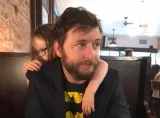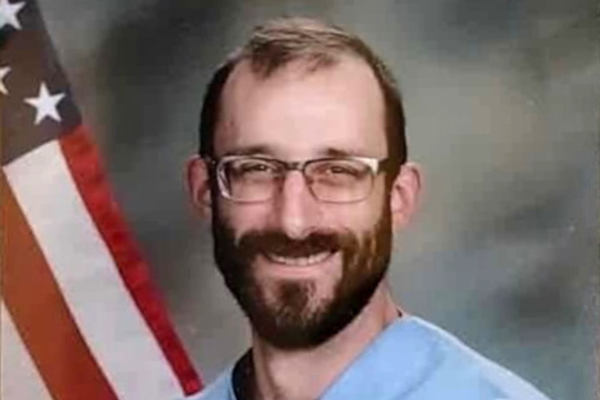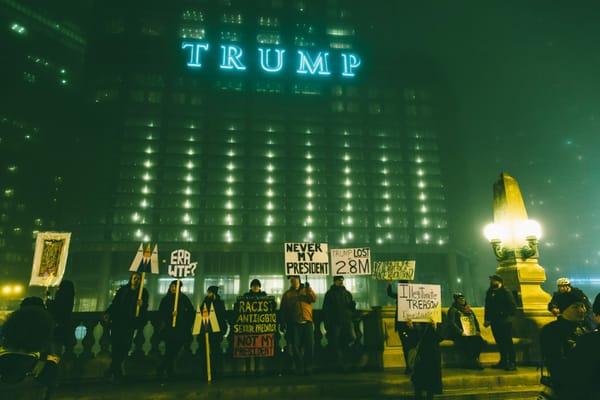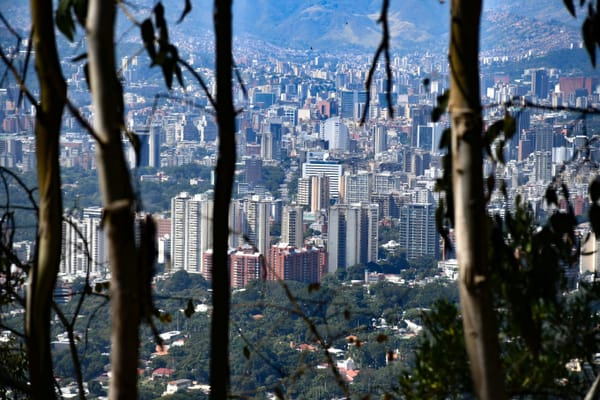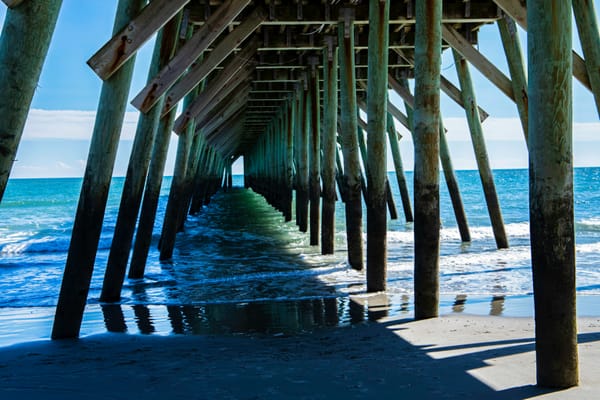We can't give up hope on climate change, one of the South's top climate educators says
Caroline Lewis, "the Jane Goodall of climate change," says there's room for hope, but there's a hard road ahead.
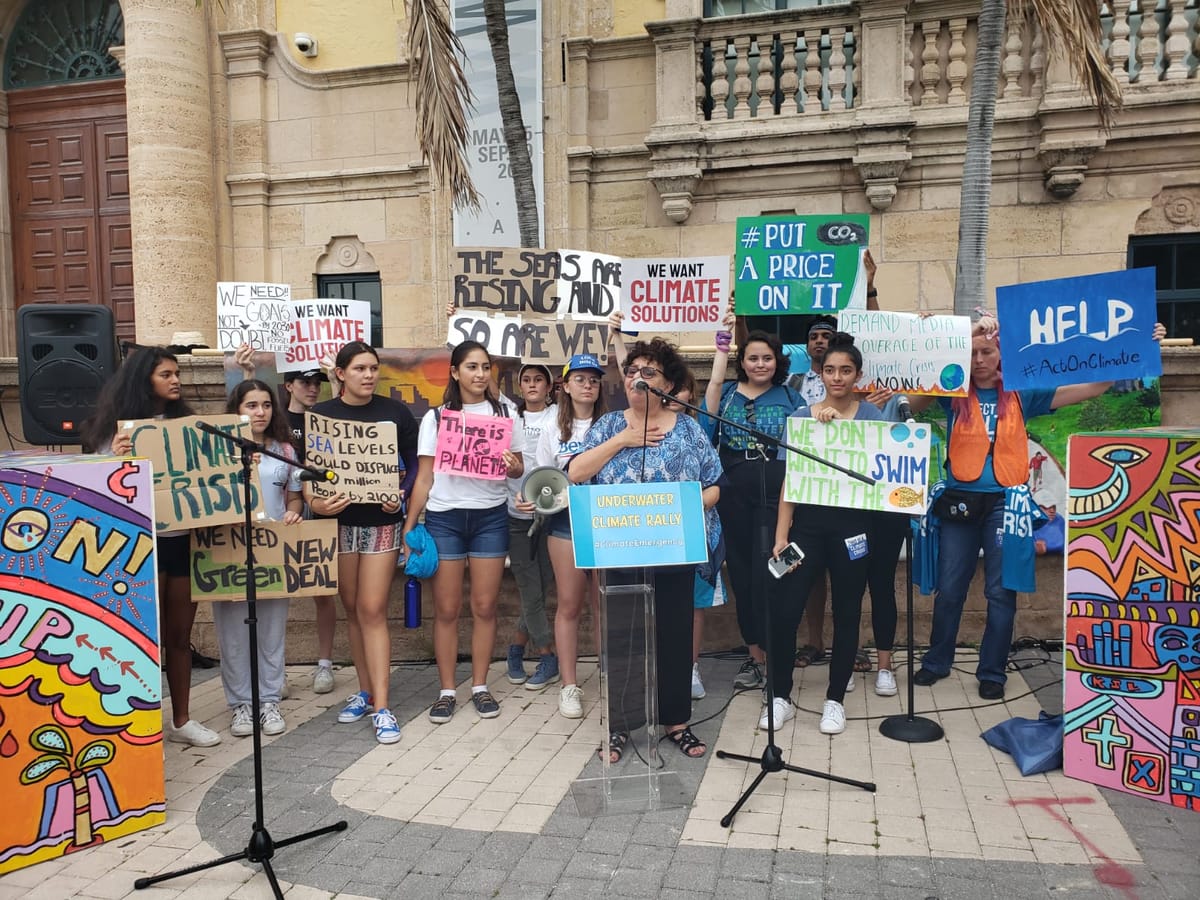
"The big one" hit Miami before dawn on Aug. 24, 1992.
Hurricane Andrew erased parts of southern Florida. As hurricanes go, it was small but fierce, with winds of more than 165 mph. Some gusts exceeded 200 mph. The most intense parts felt like a miles-wide tornado. It ripped huge ficus trees from the ground, flattened an Air Force base, disappeared the cities of Homestead and Florida City.
Sixty-three people died and the storm caused $26 billion in damage in Florida—at the time, the most in US history—before moving on to torment Louisiana.
Remarkably, things could have been far worse. Forecasters predicted a wall of storm surge that never materialized. But by the time Andrew moved on, Florida was forever changed.
Caroline Lewis, a nationally-recognized climate educator from Florida, was in Miami during Andrew. She and her husband John still live there, but these days they've sold their home and they're renting. Self-preservation, she says. More disastrous hurricanes are inevitable.
"We got Hurricane Andrew in the 90s and then in the early 2000s we had a year where we had three, including Katrina, that just kept whacking us," Lewis says. "About six years ago, we had Hurricane Irma that didn't hit Miami. It sideswiped us and we still haven't recovered from it."
Andrew still ranks as one of the strongest storms to ever hit south Florida, which is saying something. The state, which juts out into the warm hurricane-juicing waters of the Atlantic and the Gulf of Mexico, is kind of like a boxer with no defense, like Rocky Balboa waiting for his face to be punched.
One of these days, Lewis says, "the big one" will come again for Miami-Dade County, the most populous county in Florida and the seventh-largest in the United States. The Atlantic is like a wolf at the door.
But outside of Lewis' window, they're building high-rises. They seem to go up every day. People have short memories. The crane, she jokes, is her county's official bird. But Lewis, who is perhaps one of the South's loudest advocates on climate change, says it's all ill-fated.
"Miami has been playing hurricane roulette and winning," she says.
"I kinda laugh at people sometimes when they go 'but we still have so much oil and we still have so much gas.' I said, 'Look, we didn't leave the Stone Age because we ran outta stones. We left the Stone Age 'cause we found a better way to do things."
'The Jane Goodall of climate change'
Lewis is one of the most influential climate change teachers in America, and as a longtime resident of Florida, she's living in ground zero.
A native of Trinidad and Tobago, Lewis moved to the US in the 1980s, planning to be a doctor. Instead, she became a teacher and then a principal. She left for a bigger classroom in 2010, founding the CLEO Institute in Miami.
Since then, CLEO, which stands for "Climate Leadership Engagement Opportunities," has become one of the most high-profile climate advocacy organizations in the South. And Lewis, who's been dubbed "the Jane Goodall of climate change," is one of the movement's most urgent voices for adaptation. In 2018, Time named Lewis one of 31 people "changing the South."
Teaching people about climate and how to save ourselves is her most difficult lesson yet. But Lewis still speaks and acts like a classroom teacher, breaking down the existential crisis like she's explaining arithmetic.
"Every planet in every solar system has energy coming in and energy going out," she tells me. "If you are on a planet with no atmosphere, all the energy that comes in ends up going back out. You are a frozen planet. If you are on a planet with a very thick, dense atmosphere, energy comes in and a lot of that energy gets trapped and doesn't go out, and that planet is on fire.
And then you have Earth, we're like Goldilocks? We're just right. In the last 200 years, we have changed the composition of the atmosphere to the point where the outgoing energy is not as great as it ought to be. We're trapping too much and the rate at which we're warming is concerning.
So humanity and biodiversity are at risk. The planet is not."
In the 90s, storms like Andrew were considered a once-in-a-generation experience. But as climate scientists predicted, increasingly intense storms like Andrew have become more common in the 21st century.
The science is relatively simple. The planet's warming temperatures are heating up the oceans, and tropical systems do most of their strengthening over warm ocean waters.
Climate change is about more than hurricanes though. Because of the planet's warming temperatures, we can expect longer droughts, more wildfires, greater floods, and, in general, more extreme weather. Climate change isn't just making us warmer. It's making bad weather worse.
It impacts agriculture, people's health, energy costs, the economy, and so much more.
"I start off by saying: '60 miles, what is 60 miles?' I'm in midtown Miami. If I were to drive 60 miles north, I would be in Palm Beach County. If I were to drive 60 miles south, I would be in Monroe County, the Keys. If I were to go 60 miles straight up into the atmosphere, I'd be in outer space. I say, 'well, that's it guys. Those 60 miles of atmosphere, it's the only thing that allows us to live on this planet.'"
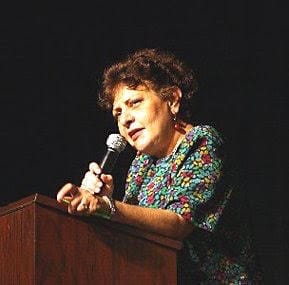
'The split-screen perspective'
CLEO teaches policymakers, politicians, local governments, school districts, youth groups, church groups, journalists, just about anyone who is willing to open their eyes and ears to what's coming, to what is, in so many ways, already here.
In the scientific community, climate change isn't a theory, it's a fact. It's happening and we can observe it, feel it, see it. For people already on this planet, the effects are irreversible, but those effects will worsen without major changes to reduce greenhouse gas emissions on a global scale.
Because of the United States' size and industry, it has a kind of veto power over the rest of the world. Many countries can do what they want to limit greenhouse emissions, but they need mammoth countries like the US and China to buy in.
For CLEO, the scale of the challenge is enormous. But perhaps no state has as much to lose from climate change as Florida, even if many of its leaders have flatly denied the science. To hear Lewis describe it, they're like the mayor in "Jaws," refusing to close the beaches even after a shark starts gnawing on swimmers.
“We don’t want our policy driven by climate ideology," Florida Gov. Ron DeSantis said in 2024, after signing a bill that struck the state's energy emission goals and banned renewable energy projects.
Since Florida Republicans approved sweeping climate change goals in 2008, the party has changed. Former Florida Gov. Charlie Crist, then a Republican, told MSNBC in 2008 that his goal as a Christian was "to save the planet." Now Republicans like DeSantis and President Trump, both climate change skeptics, are the standard bearers. Crist left the party in 2010.
The United States' commitment to this job comes and goes with an election. Many advocates like Lewis hailed Biden's presidency—and the passage of the Inflation Reduction Act, which contained a historic investment in climate—as a momentous, if incomplete, step.
But Trump's "One, Big Beautiful Bill" is expected to walk back many of former President Biden's climate change plans.
Which is why CLEO has bigger fish to fry than Florida. The organization wants to change the way policymakers, educators, and thought leaders approach this existential crisis, Lewis says. For some people, it's too big, too hopeless seeming to wrap your arms around.
"What I try to do is to teach the split-screen perspective," says Lewis, "where you look at the big picture and you understand the arena you're playing in and you look at your day-to-day life, your backyard, your immediate (surroundings), and you go back and forth. If you only stay here, you're not seeing the big picture. And if you only do the big picture, you're not getting shit done. ... Sorry, stuff done."
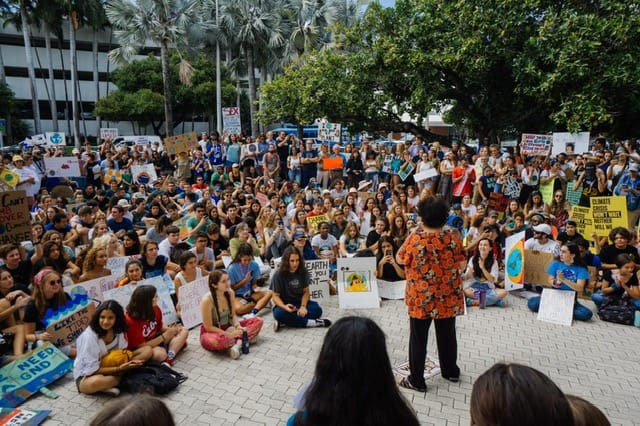
'I got floral patterns, I'm loud'
Lewis is small in stature, but feisty, wielding facts like a cudgel. She's annoyed by people who want the microphone but don't do their research first. She's occasionally furious, often dismayed, always ready to engage.
When she was recognized by the Obama White House in 2013 as a climate champion, she didn't waste the platform, castigating President Obama and his advisors for not doing enough about climate.
She chastised one speaker at the Obama summit because he stumped for "clean" natural gas, which Lewis, and most environmental scientists, dismiss as ludicrous.
"When I go to the White House and I'm from Florida, I dress like I'm from Florida," she says. "I got floral patterns. I'm loud, and I sit in the front, and when I jumped outta my seat I said, 'Sir, you are dead wrong."
Around the same time, she sat on a Congressional advisory committee tasked with explaining the threat. Lewis volunteered to write the opening sentence. It would be three words, she said. "We have failed."
"Because it was 40 years of Earth Day celebrations," Lewis says, "and we are still wrestling in America with recycling, with composting, with renewable energy, with the political and economic will to really scale these things. Under Obama, we did some. Under Biden, we did a lot, and now we're regressing."
"Calling people out," she adds, "is my superpower."
The most important question, however, is hope. Is there any for us? A UN report in 2022 found that it was too late for humans to avoid the impacts of climate change. We have missed too many deadlines, the report said. But that doesn't mean humanity can't blunt the worst effects.
I ask Lewis about hope and she doesn't hesitate.
"I think the Trump administration has put a break on the rate at which we were getting out of trouble, but we are still, we have a lane," she says. "And nationally and globally, there's too much momentum in favor of renewable energy and adaptation and it is, it's an unstoppable force."
"I don't care what you say. The cost of wind and solar is so much cheaper than oil and gas that there's no denying the financial case for climate action."
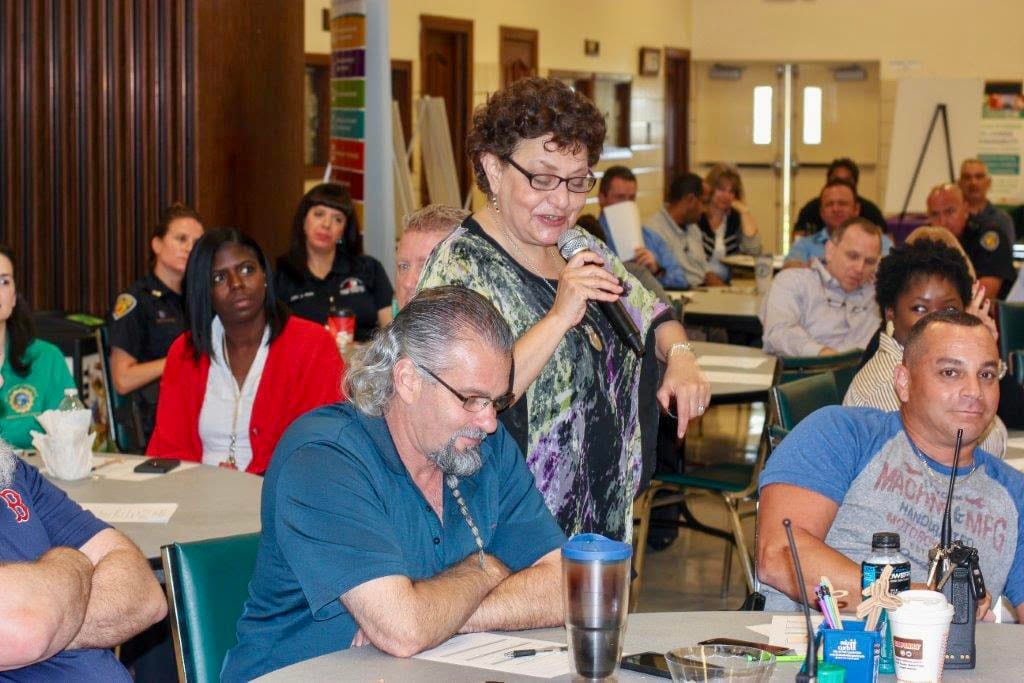
The Living South was created by NC journalist Billy Ball in 2025. It centers on the most interesting change-makers in the South. Share this story with five friends and help us grow.

